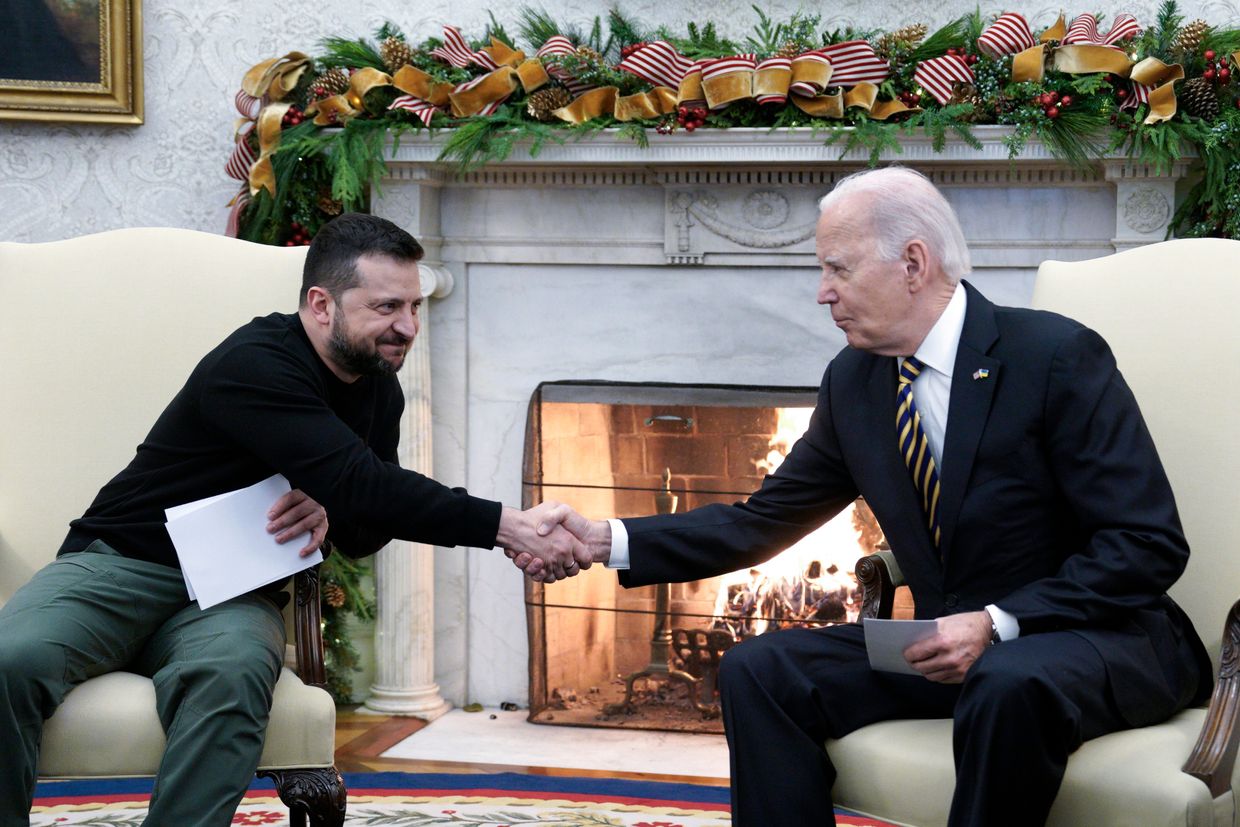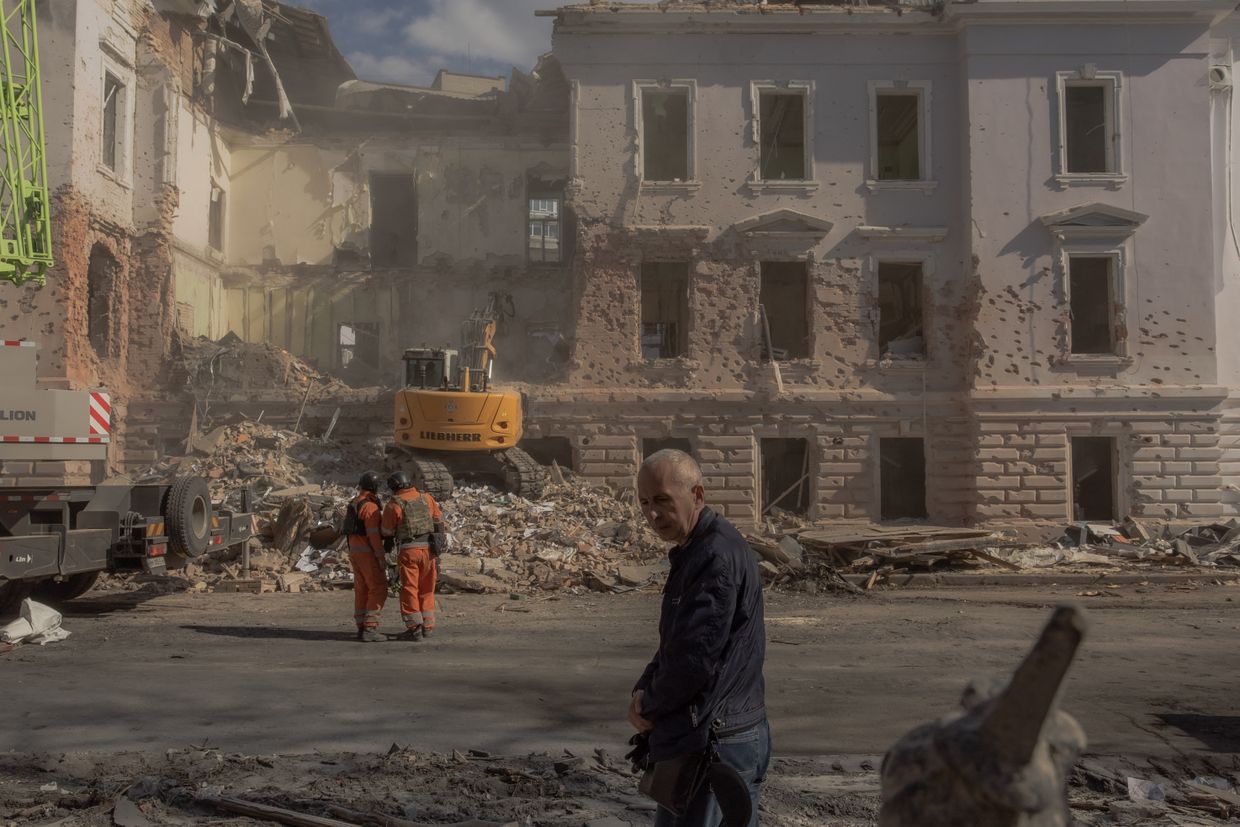U.S. President Joe Biden announced during a briefing on April 24 he had signed the foreign aid bill containing close to $61 billion for Ukraine into law, marking the final step of the legislative process.
After months of political infighting and a deteriorating situation on the battlefield in Ukraine, the U.S. House of Representatives finally passed the crucial foreign aid package on April 20, which includes $60.84 billion for Ukraine.
"It gives vital support to America's partners so they can defend themselves from threats to their sovereignty," Biden said, adding he would order to send weapons to Kyiv in the next few hours.
The House voted on three separate bills on April 20 granting aid to Ukraine, Israel, and the Indo-Pacific region, which is intended to address Chinese aggression in the region. In addition to aiding Ukraine, the bills include $26.4 billion to aid Israel and $8.1 billion to be spent on Indo-Pacific security.
A fourth bill on national security priorities catered to Republican goals, including sanctions on Iran, the potential transfer of seized Russian assets to Ukraine, and a measure that could lead to a ban on TikTok.
The Senate then overwhelmingly approved the bill on April 23, with 79 votes in favor and 18 against.
Pentagon spokesperson General Pat Ryder said that the flow of U.S. military assistance could resume within days following Biden's signature.

"Thanks to organizations like the Security Assistance Group-Ukraine and plus our efforts with international allies and partners, we have created a very robust logistics network to enable the delivery of aid into Ukraine," Ryder said.
The new tranche of aid will stem from Biden's presidential drawdown authority (PDA), which takes military equipment from existing stockpiles, meaning that potential procurement-related delays will be limited.
Reuters reported on April 23, citing unnamed U.S. officials, that the U.S. was preparing a $1 billion military aid package for Ukraine to be issued once Biden signed the bill.
The $1 billion package will reportedly include vehicles, Stinger air defense munitions, TOW and Javelin anti-tank munitions, and additional ammunition for high-mobility artillery rocket systems (HIMARS).
Sources told Reuters it would also contain 155-millimeter artillery shells and "other weapons that can immediately be put to use on the battlefield."
Some of the U.S. military aid for Kyiv is already reportedly in Germany and Poland, cutting down the time needed for the weapons and equipment to reach the front line.
Other pieces derived from the $61 billion package may take more time, as they may need to be sent from the U.S. or other locations. Some potential items of military aid will also need to be purchased or even manufactured, which will take even longer.












